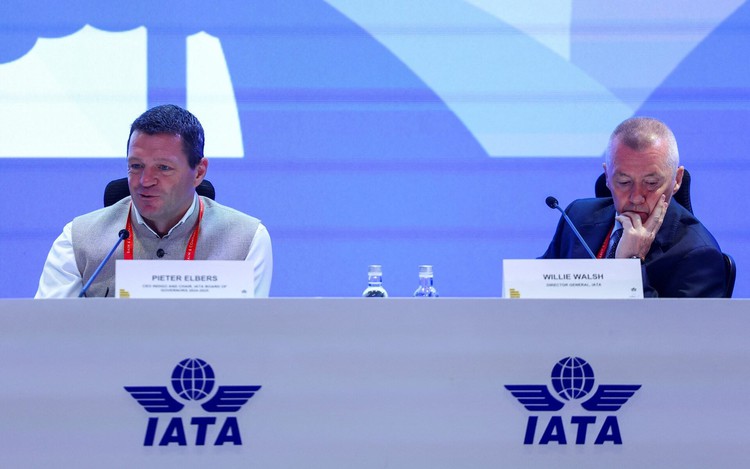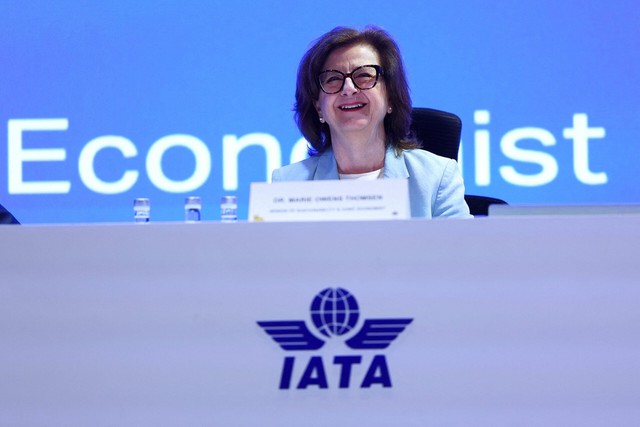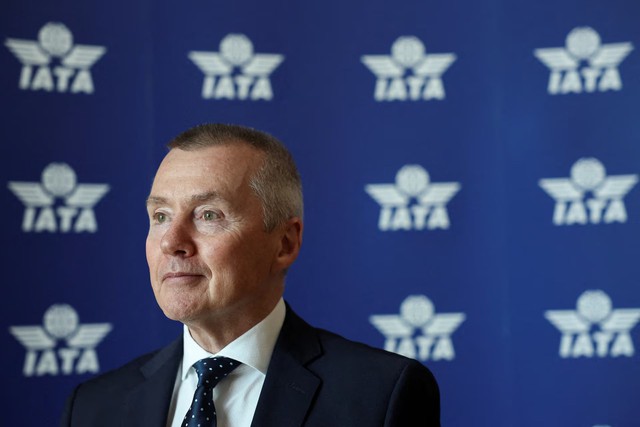
IndiGo CEO Pieter Elbers and Willie Walsh, Director General, International Air Transport Association (IATA), attend the press briefing during the annual International Air Transport Association (IATA) meeting in New Delhi, India, June 2, 2025. Photo: Reuters
The IATA industry body now expects global airlines to post a combined profit of $36.0 billion this year, down slightly from a previous forecast of $36.6 billion in December, before U.S. President Donald Trump took office. He has since launched a trade war and tightened enforcement of U.S. border controls.
But airline profits are still set to rise from $32.4 billion last year, helped by lower oil prices and record passenger numbers.
The International Air Transport Association issued the widely watched forecasts, which give clues to the wider economy, at an annual meeting of its more than 300 member airlines in New Delhi.
"Earning a $36 billion profit is significant. But that equates to just $7.20 per passenger per segment," IATA Director General Willie Walsh said in a statement.
That is a thin buffer against any future demand shocks or taxes as the industry returns to a more normal regime after a sharp bounceback in air travel from the pandemic, he said.

Marie Owens Thomsen, Senior Vice President Sustainability and Chief Economist, International Air Transport Association (IATA), reacts at the press briefing during the annual International Air Transport Association (IATA) meeting in New Delhi, India, June 2, 2025. Photo: Reuters
Strong employment and easing inflation are expected to push revenues up 1.3% compared to last year. But airlines will have to wait a little longer to hit the $1 trillion mark after IATA trimmed its prior forecast for industry-wide revenues by 2.1% to $979 billion, which would still be an all-time record.
Trump's sweeping tariffs have stoked fears of an economic slowdown and squeezed discretionary spending, prompting many consumers especially in the United States to delay or scale back travel plans.
Meanwhile, aircraft delivery delays have hampered airlines' ability to meet soaring travel demand in certain regions, while driving up operating costs as carriers are forced to keep older jets in service or pay more for the dwindling number of available spare parts.
"It's been something that has frustrated everybody, particularly airlines who are waiting to take delivery of aircraft or have aircraft sitting on the ground that they'd love to see in service," Walsh told Reuters in an interview.
In a statement on the new outlook, Walsh called predictions of delays throughout this decade "off-the-chart unacceptable".

IATA Director General Willie Walsh looks on during an interview with Reuters in Dubai, United Arab Emirates, June 2, 2024. Photo: Reuters
Total expenses for the industry are forecast to reach $913 billion in 2025, up 1.0% from 2024 but below earlier projections of $940 billion, as lower fuel prices help offset rising aircraft maintenance costs.
IATA predicted that cargo revenues would drop 4.7% to $142 billion in 2025, mainly due to reduced global economic growth and trade-dampening protectionist measures, including tariffs.
Amid a tug of war over who should absorb the tariffs, Walsh recognised that some manufacturers would be tempted to pass them on to their customers, but warned this would also push up fares.
"Ultimately, when I look at this, I see consumers are going to have to end up paying for any higher costs that the industry faces," he told Reuters.


Max: 1500 characters
There are no comments yet. Be the first to comment.